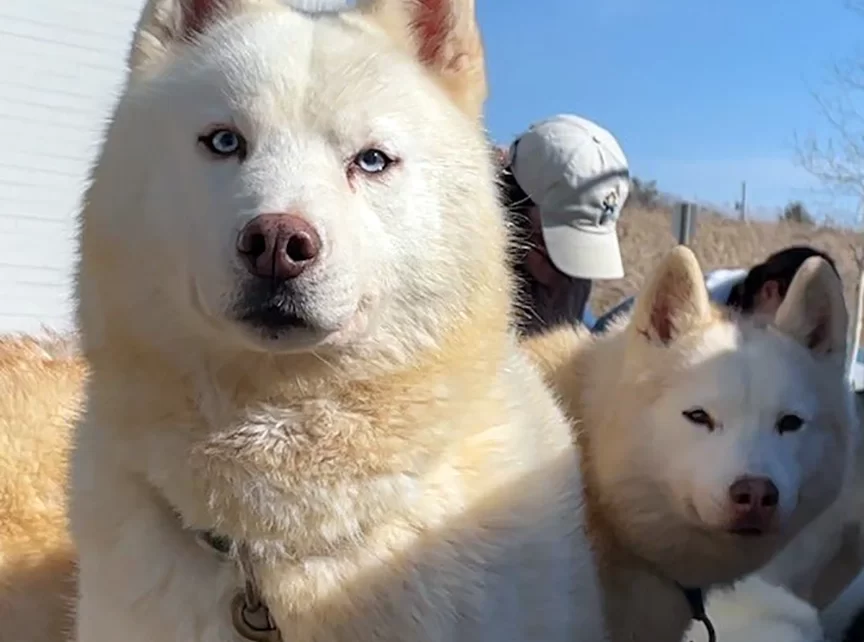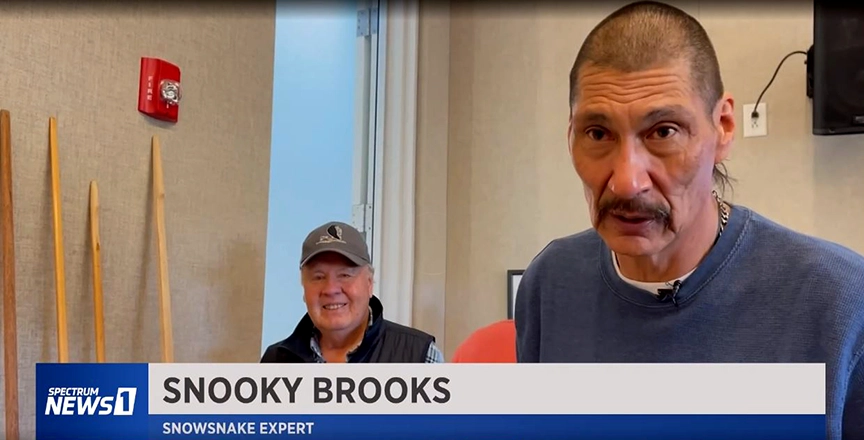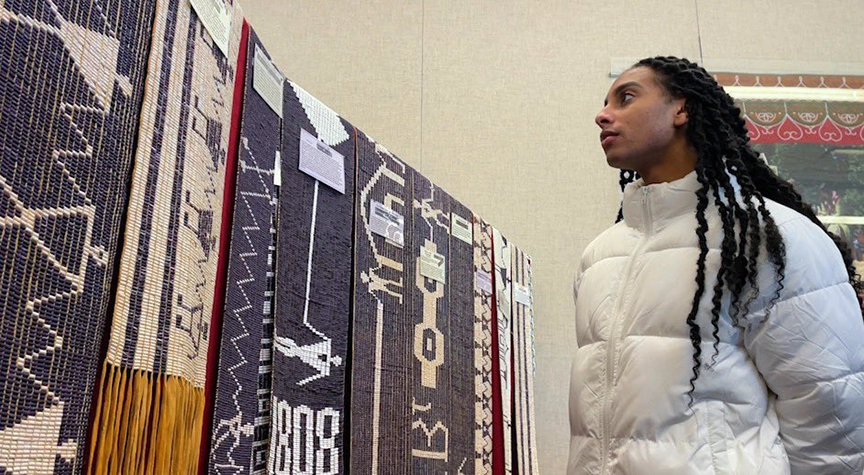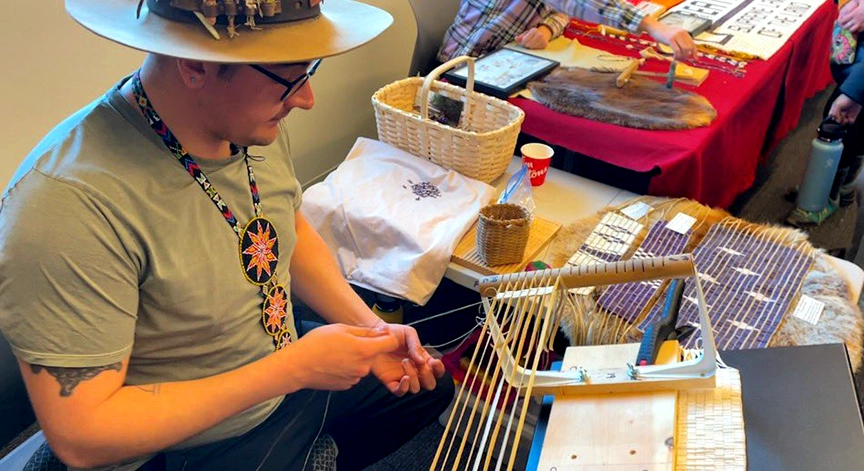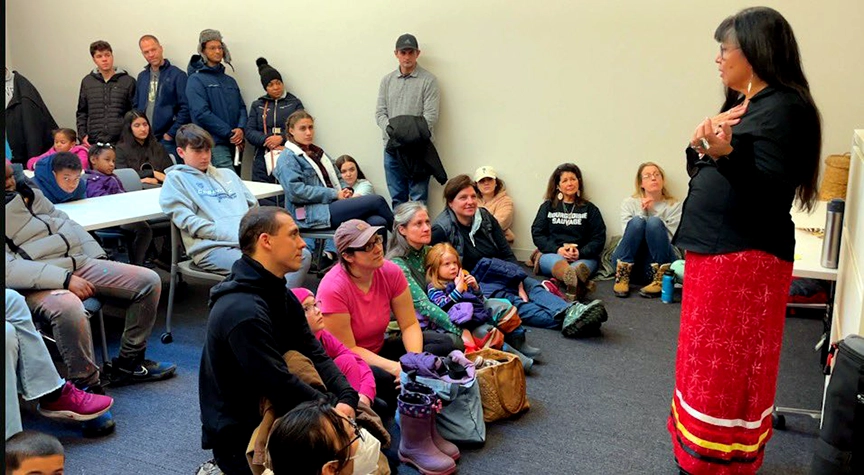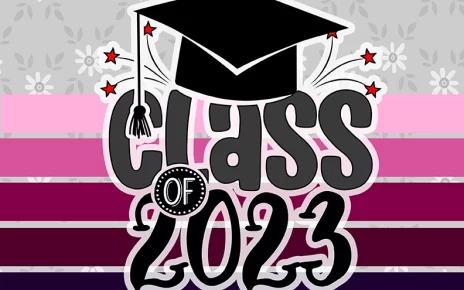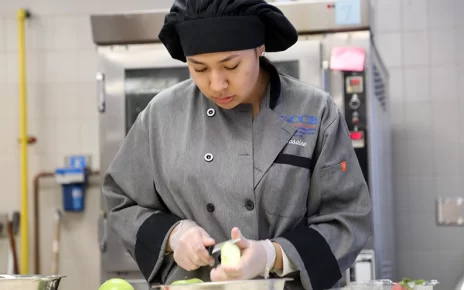February 18, 2023 | By Adriana Loh | spectrumlocalnews.com
ROCHESTER, N.Y. — Ganondagan’s Native American winter games celebrated its 20th anniversary last weekend.
Guests discovered the Seneca and Haudenosaunee ways of winter through traditional Native American activities.
“We are in traditional Seneca territory, we’re still here, as Indigenous people,” cultural liaison at Ganondagan State Historic Site Ansley Jemison said. “I know people want to do land acknowledgments and things like that. This is an opportunity to maybe take that one step further from a land acknowledgment and acknowledge the fact that there’s a culture here, the rich culture here, a vibrant culture here.”
Despite the lack of snow, members were able to share traditional activities they normally practice in the winter, like the game of snowsnake.
“Unfortunately, we’re indoors because we have no snow,” snowsnake expert Snooky Brooks said. “So what we have here are a few long sticks. They’re used for the first class. Second class, third-class divisions of the actual game. The little snake that we have down here, we started our children out with a little boy, started out with these things. It’s called the Mudcat. And we start off for the little guys so they get an understanding, they’re aware of the game. And then we do have men use these and that is very competitive.”
They even invited their furry friends for part of its dog sledding demonstration. Originating in Indigenous communities in the Arctic, dog sledding has been the main method of transportation during the winter.
“This breed was used by Inuit peoples to check trap lines, for transportation, to live in dwellings and keep family members warm,” Kindred Moon Kennel musher Jo Lynn Stresing said. “So this has a very old tradition of thousands of years of being a working, working animal that helped people in snow climbs being far.”
Organizers took the event as an opportunity to not only interact with guests but also educate those on the Indigenous culture and lifestyle.
“When I went to school, I never saw any of this stuff in the books,” Brooks said. “The teachers never taught me anything about the Indian way of life, the games, or some of the history. The unique thing is it’s not recorded. We don’t write this stuff down, it’s an oral translation. We’re here to show people and educate people on what we do.”
They indulged guests in its rich history of storytelling and traditions.
“Today at the Winter Festival we’re working on the one dish, one spoon wampum belt, it’s one of our oldest belts,” board member at Ganondagan State Historic Site Dalton Labarge said. “We hear in schools that wampum is currency or just a thing of trade, and that is not necessarily false. It became very important in contact with colonialism. But I would like people to know that this practice, that this material culture is not a museum item. It is a living practice. And it is a living document into which our ancestors and our modern people have put our words and stories and understanding of our responsibilities in this world while we’re here.”
They hope visitors take away an enjoyable experience of its winter traditions and an even better understanding of the culture.
“Any of the programs that we have here is geared to educate people about indigenous culture,” Jemison said. “And just to share and let people understand that we’re still here and that we’re very much a part of the country and very much part of the culture that we have here and how much we’ve contributed to the country.”

